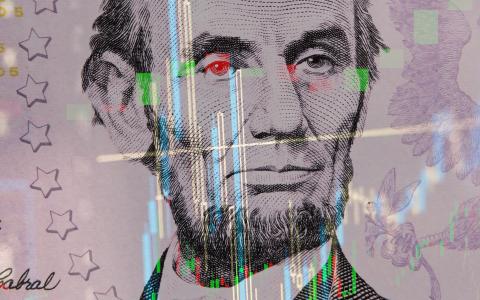
(The Bharat Express News) - The worst banking turmoil since the 2008 financial crisis appears to have eased somewhat, but it has sparked a new worry for investors: a credit crunch that threatens to paralyze the economy.
-
The turmoil among the banks has led to a new concern for investors: a credit crunch that threatens the economy.
-
According to Morgan Stanley strategists, the credit crunch has “already begun,” according to the latest data on bank lending.
-
Here’s a selection of recent warnings about the emerging threat from experts including Larry Summers, David Solomon, Mike Wilson, Nouriel Roubini, and Bill Gross.
Banks are becoming increasingly risk averse and less willing to lend as they face massive deposit outflows and the prospect of increased regulatory scrutiny amid the sector jitters – all of which are limiting the flow of credit to the economy. Recent data showed the sharpest drop in lending on record in the past two weeks, suggesting a credit crunch has already begun, according to Morgan Stanley.
Many big Wall Street names and other pundits are now concerned about the impact of the credit crunch on the US economy. Former Treasury Secretary Larry Summers, Morgan Stanley’s Mike Wilson, “Dr. Doom” economist Nouriel Roubini and billionaire investor Bill Gross are among those who have warned of the emerging threat.
Granted, not everyone sees it that way. Apollo Asset Management’s Jim Zelter told Bloomberg that “it’s not a credit crunch,” but rather a “period of transition” as markets face higher levels of debt.
Yet many of the latest economic commentaries from leading voices sound a stark warning. Below are some of the most recent warnings about the credit crunch and associated economic risks from high-profile investors, analysts and other experts.
Mike Wilson, Morgan Stanley’s top equity strategist
“The data suggests that a credit crunch has begun,” Wilson said in a note published this weekend, citing recent numbers that showed an unprecedented decline in bank lending. He added that $1 trillion in deposits had been withdrawn from US banks since the Federal Reserve started raising rates a year ago.
While stock markets have remained relatively stable after the initial impact of last month’s bank failures, Wilson says that shouldn’t be taken as a sign that all is well, but rather an indication that stocks are at risk of a sudden drop.
Larry Summers, bformer finance minister
“The probability that a recession has started in the US this year in the next 12 months is probably about 70 percent,” Summers said.
“If I add up the delays related to monetary policy, the risks of the credit crunch, the need for continued action on inflation, the risk of geopolitical or other shocks affecting commodities, 70% would be the range where I would sit.”
“I think that puts me on the pessimistic end of the spectrum of opinion,” the economist added
‘Dr. Doom economist Nouriel Roubini
Regional lenders in the US have been hit hard by the recent banking turmoil, which Roubini says could spell further trouble for the economy.
“I think the problems are with the regional banks. But the regional banks are important lenders to households for mortgages, for small businesses, for SMEs, for commercial real estate. And that is why we are having a credit crunch,” said the veteran economist. said in a recent interview with Fox Business.
“That credit crunch will make the likelihood of a recession — a hard landing — much higher than before. So we’re facing a serious credit crunch for a good portion of the U.S. banking system,” he said.
‘Bond King’ Bill Gross, co-founder of Pimco
“Williams of the Fed rejects link between rate hikes and bank stress!!!!” Gross tweeted last week, after New York Fed President John Williams said he didn’t believe rising interest rates were responsible for the lender’s collapse.
“Pretty incredible,” Gross continued. “450 basis points and more rate hikes in 12 months will undoubtedly impact balance sheets that use proper accounting – including maturity and credit.”
Jeffrey Gundlach, CEO of DoubleLine Capital
“The NFIB Small Business Credit Conditions Index is plummeting (not surprising given the recent bank failures) and is now where it was in late 2007/early 2008,” DoubleLine Capital’s CEO tweeted.
David Solomon, CEO of Goldman Sachs
“Recent events in the banking sector are lowering growth expectations, and there is a greater risk of credit contraction as the environment constrains banks’ willingness to lend. We remain cautious on the economic outlook,” said Goldman Sachs head. . That said the bank on Tuesday about the figures for the first quarter.
Daniele Antonucci, chief economist at Quintet
“The legacy of the period of financial instability and stress in the banking sector is likely to be tighter credit conditions. We expect credit conditions to tighten in the future,” Antonucci told Insider.
“Whether this qualifies as a full-fledged ‘credit crunch’ remains to be seen. While we would describe it more as a ‘credit crunch’ at this point, there is a risk that if left unchecked, it could turn into something broader.”
Preston Caldwell, US chief economist at Morningstar Research
“The credit crunch complicates the Fed’s work because it creates uncertainty about the economy’s sensitivity to monetary policy changes,” Caldwell told Insider.
Salman Ahmed, Fidelity’s global head of macro and strategic asset allocation
“As long as money market yields remain substantially higher than the banking system’s deposit rates, the flight of deposits from smaller banks to larger banks or the complete abandonment of the banking system may continue to fuel further tightening or stress in the credit channel,” the Fidelity strategists said.



